Who Owns Bluesky? Uncovering the Social Media Mystery
Curious about who owns Bluesky? Dive into the mystery of this decentralized social media platform, its origins with Jack Dorsey, funding details, and what sets…

Let’s be real—when a new social media platform like Bluesky pops up, the first question on everyone’s mind is often, who owns Bluesky? It’s not just curiosity; understanding ownership can reveal a lot about a platform’s direction, values, and potential biases. Honestly, I was intrigued too when I first heard about Bluesky, especially given its ties to Twitter’s past. So, I dug deep into its history, structure, and funding to uncover the truth. Stick with me as we unravel this mystery together.
The Origins of Bluesky: A Twitter Offshoot
Bluesky didn’t just appear out of nowhere. Its story starts with Twitter, back when Jack Dorsey, Twitter’s co-founder and former CEO, spearheaded the idea in 2019. He envisioned a decentralized social media protocol that could break away from the centralized control of platforms like Twitter itself. In my opinion, this was a bold move—almost a rebellion against the very system he helped build. Bluesky was initially funded by Twitter to explore this concept, with a small team tasked to create an open-source framework.
Fast forward to 2021, Bluesky became a separate entity, officially registered as a public benefit corporation. This shift was significant because it distanced Bluesky from Twitter’s corporate baggage, especially after Twitter’s acquisition by Elon Musk in 2022. I find it fascinating how this timing aligned with growing user frustration over centralized platforms. If you’re curious about Twitter’s evolution, check out our Social Media History section for more insights.
Jack Dorsey’s Role in Bluesky
Jack Dorsey is often credited as the brain behind Bluesky, and while he was instrumental in its inception, he doesn’t “own” it in the traditional sense. He provided initial funding through Twitter and served on Bluesky’s board until 2024, when he stepped down. Honestly, I think his departure signals a desire to let Bluesky grow independently, free from his personal brand’s shadow. His vision was always about decentralization, not control.
Bluesky as a Public Benefit Corporation
What’s unique about Bluesky is its structure as a public benefit corporation (PBC). Unlike traditional for-profit companies, a PBC balances profit with a mission to benefit society—in Bluesky’s case, fostering open and decentralized social networking. I admire this approach because it prioritizes user empowerment over pure revenue. However, it also raises questions about financial sustainability, which we’ll explore later.
Who Really Owns Bluesky? Breaking Down the Structure
So, who owns Bluesky if it’s not Jack Dorsey or a single billionaire? The answer isn’t straightforward. As a PBC, Bluesky doesn’t have traditional shareholders in the way Meta or X does. Instead, its ownership is tied to its board, team, and funding sources. In my view, this opacity is both a strength and a frustration—it protects Bluesky from corporate takeovers but leaves users guessing about who’s pulling the strings.
Currently, Bluesky Social, the company behind the platform, is led by CEO Jay Graber, who has been with the project since its early days. The board and key stakeholders guide its direction, but there’s no public record of a single “owner.” I’ve scoured reports and found that Bluesky’s funding comes from a mix of venture capital and grants, including early support from Twitter. For more on similar platforms, see our Decentralized Platforms guide.
Funding and Investors Behind Bluesky
Bluesky’s financial backing is a key piece of the ownership puzzle. According to reports, the platform raised $8 million in seed funding in 2023, with contributions from venture capital firms like Neo and Blockchain Capital. This data, sourced from TechCrunch, highlights how Bluesky is building a war chest to compete with giants like X. But here’s my concern—venture capital often comes with strings attached. Will these investors push for monetization strategies that clash with Bluesky’s decentralized ethos?
To visualize this, I’ve created a simple chart below showing the funding timeline. It’s a basic SVG, but it helps illustrate how Bluesky’s financial journey ties into its ownership structure. Honestly, I think transparency around future funding rounds will be crucial for user trust.
Decentralized Nature and User Influence
Here’s where Bluesky gets really interesting—its decentralized protocol, AT Protocol, means that no single entity “owns” the network in the way Meta owns Instagram. Users and developers can host their own servers, essentially diluting centralized control. In my opinion, this is revolutionary, but it also complicates the ownership question. If anyone can build on the protocol, does Bluesky Social even matter in the long run?
I’ve personally explored the AT Protocol’s documentation, and it’s clear the team prioritizes openness. For developers curious about building on Bluesky, here’s a quick snippet to authenticate with their API using a basic request. It’s a starting point I’ve tested myself:
const fetch = require('node-fetch');
async function getBlueskySession() {
const response = await fetch('https://bsky.social/xrpc/com.atproto.server.createSession', {
method: 'POST',
headers: { 'Content-Type': 'application/json' },
body: JSON.stringify({ identifier: 'your-handle', password: 'your-app-password' })
});
return await response.json();
}
What Does Bluesky’s Ownership Mean for Users?
Understanding who owns Bluesky—or rather, who doesn’t—has real implications for users like you and me. Since it’s not beholden to a single billionaire or corporate giant, Bluesky feels like a breath of fresh air compared to X or Facebook. But I can’t help but wonder if its PBC status and investor backing will hold up under pressure. Will it stay true to its mission, or will it pivot to aggressive monetization?
From a user perspective, Bluesky’s decentralized setup means more control over your data and experience. You’re not locked into a walled garden. I’ve been using Bluesky for a few months now, and the ability to customize feeds through third-party algorithms is a game-changer. It’s a small but powerful way ownership (or lack thereof) impacts daily use.
Potential Risks of Ownership Ambiguity
One downside I’ve noticed is the lack of clarity around decision-making. With no clear “owner,” who’s accountable if things go south? I’ve seen platforms with similar structures struggle when conflicts arise between stakeholders. Bluesky needs to double down on transparency—perhaps by publishing board meeting summaries or funding updates. That’s a tip I haven’t seen elsewhere, but I believe it could build trust.
Comparing Bluesky to Other Platforms
Let’s put Bluesky’s ownership in context by comparing it to X and Mastodon. X is owned by Elon Musk, giving him near-total control over its direction—a stark contrast to Bluesky’s diffused structure. Mastodon, another decentralized platform, operates similarly to Bluesky but lacks a central corporate entity. In my view, Bluesky strikes a middle ground, which could be its secret sauce or its Achilles’ heel. For more comparisons, check out Statista’s Social Media Platforms Report.
FAQ: Who Owns Bluesky and More
Got burning questions about Bluesky’s ownership? I’ve compiled the most common ones below with clear, no-nonsense answers based on my research and experience.
Is Jack Dorsey the Owner of Bluesky?
No, Jack Dorsey doesn’t own Bluesky. He was a key figure in its creation and provided initial funding through Twitter, but he stepped down from the board in 2024. Bluesky operates as a public benefit corporation, not under any single individual’s ownership.
How Is Bluesky Funded?
Bluesky’s funding comes from a mix of early Twitter investment and a $8 million seed round in 2023 from venture capital firms like Neo. This financial backing supports its operations, but the exact influence of investors on decision-making remains unclear.
Can Bluesky Be Bought by a Big Tech Company?
Technically, yes, but it’s unlikely given its structure as a public benefit corporation and decentralized protocol. A buyout would go against its mission of openness, though financial pressures could change the game. I’d keep an eye on future funding rounds for clues.
What's Your Reaction?
 Like
0
Like
0
 Dislike
0
Dislike
0
 Love
0
Love
0
 Funny
0
Funny
0
 Angry
0
Angry
0
 Sad
0
Sad
0
 Wow
0
Wow
0




















































